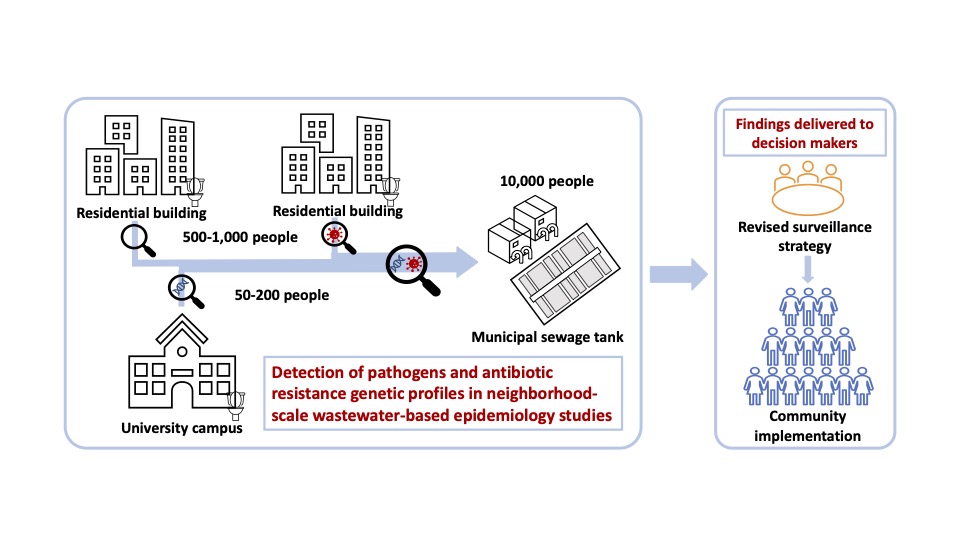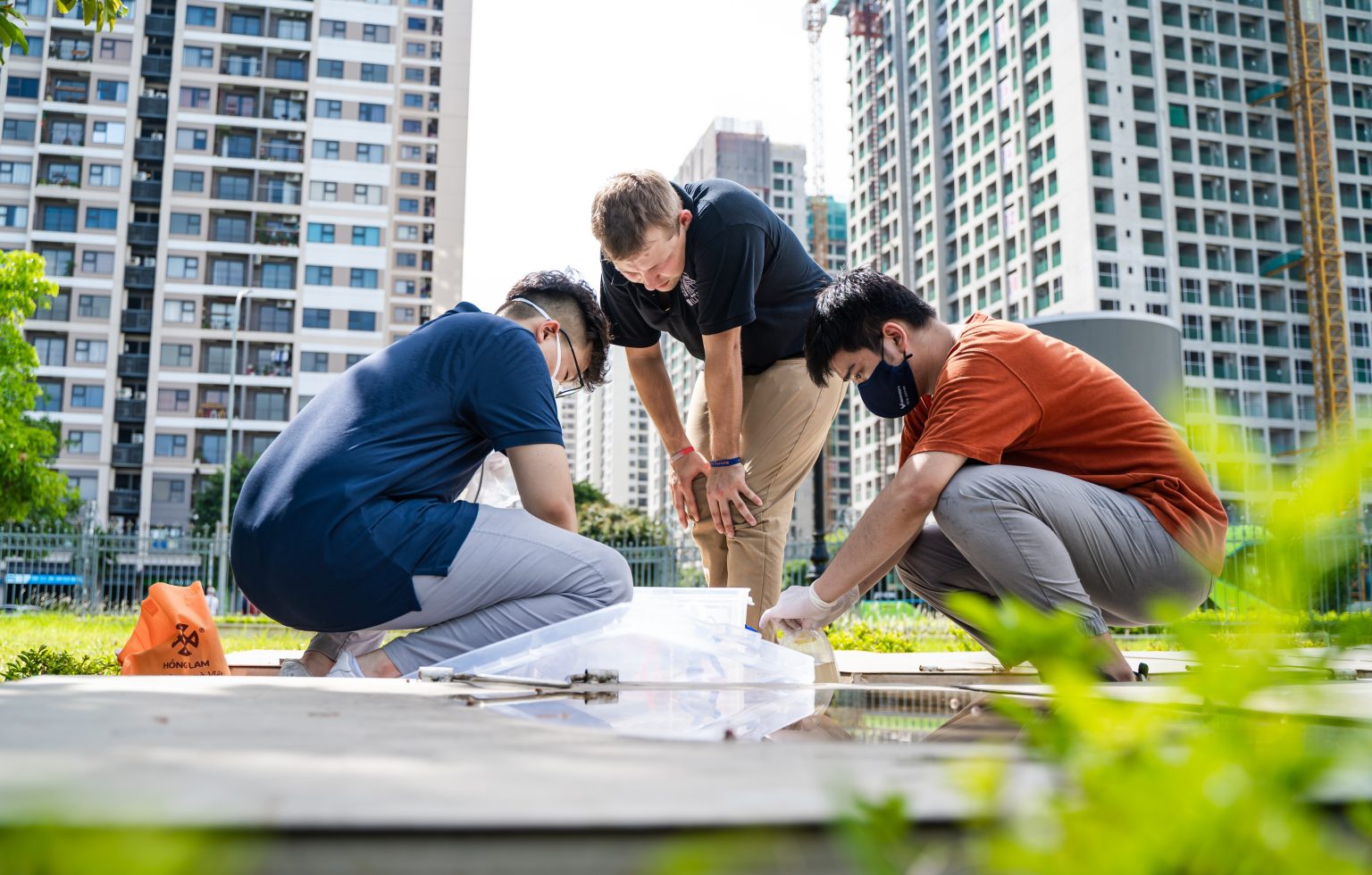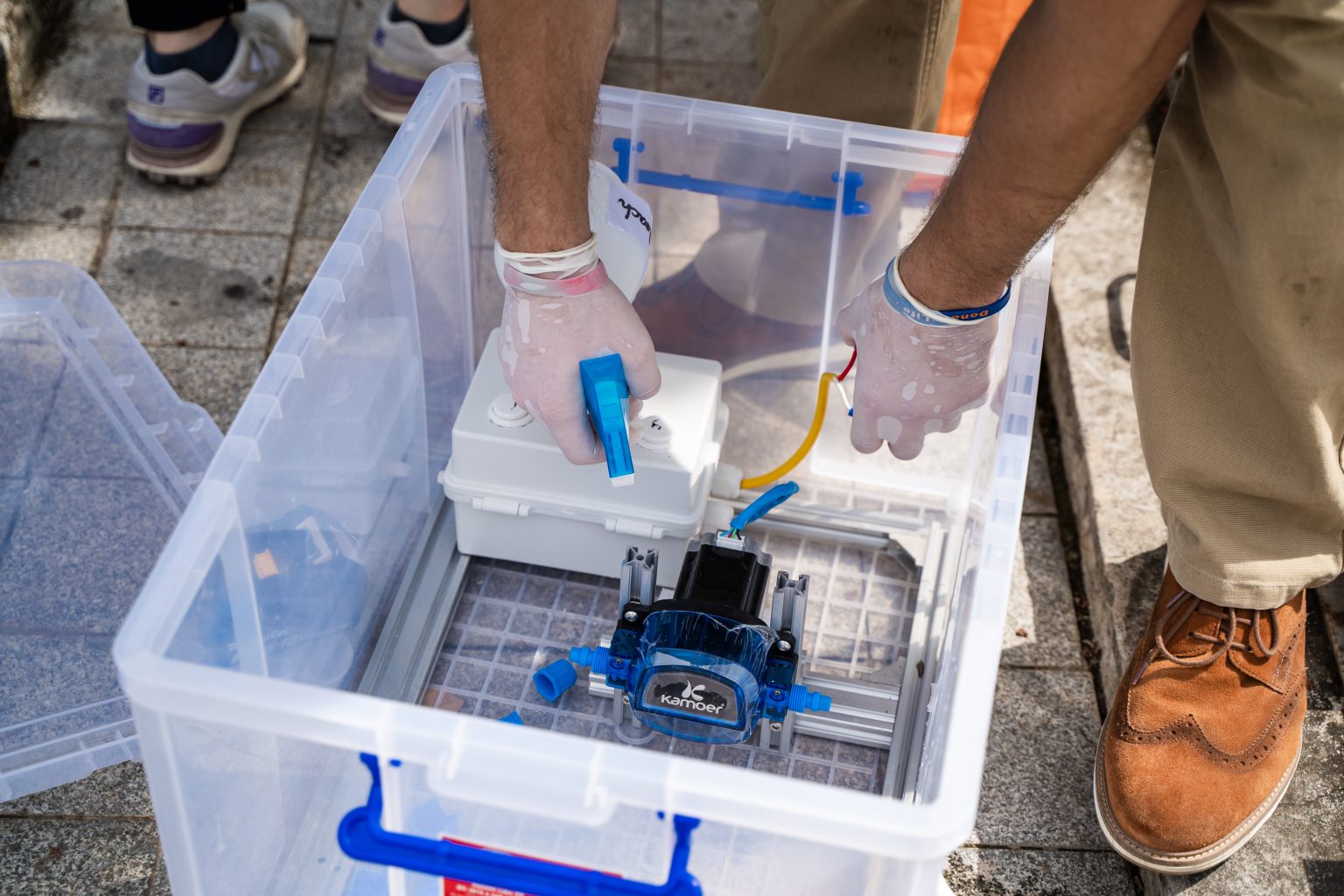Wastewater Epidemiological Surveillance in Vietnam

Throughout history, infectious disease pandemics have periodically threatened humanity. Newly emerging and re-emerging pathogens and antimicrobial resistance continue to challenge global public health in the 21st century. Vietnam, with a population of 100 million, is especially vulnerable to antibiotic resistance by pathogenic bacteria because of unregulated usage of antibiotics in humans and agriculture.
Antibiotic resistance (AR) threatens the progress of modern medicine not only on treatment of bacterial infections but also on treatment of non-communicable diseases such as cancers and chronic diseases, including diabetes. AR- is especially serious in Vietnam because of the aging population. Aging comes with a weaker immune system to fight infection and chronic conditions that are vulnerable to infection. As the aging population increases in size with the increase in the quality-of-life, the intersection of the AR crisis with the aging population will significantly increase the spending on healthcare for elderly residents. Routine treatment for the elderly, including heart valve replacement, hip or knee replacement, and cancer treatment and recovery, may become more costly or even deadly due to AR.
Traditionally, AR is monitored only in clinical settings and summarized into annual antibiograms that guide physicians to prescribe antibiotics. In this project, we will develop a novel antibiogram, by analyzing the spatial and temporal distribution of AR genes in humans’ sewage, animals, and clinical samples in Hanoi and Illinois. A wastewater monitoring network has been established in both locations since summer 2022.The following aims are proposed:
Aim 1: We will use whole genome sequencing and a combination of CRISPR-Cas9 cleavage and next-generation sequencing (NSG) to determine ARG compositions and establish a new antibiogram.
Aim 2: we will develop an app for residents that reminds them to take their medicine, including antibiotics. We will receive aggregated data from the app on the usage of antibiotics in the same communities where the sewage was collected and analyzed. This information will link the usage of antibiotics with resistance.
Aim 3: we will develop both agent-based and population-based models, constrained by the collected data from hospitals, the mobile app, and wastewater monitoring system, and augmented by Machine learning techniques, to understand patterns of uptake of antibiotics as well as to correlate these with social, dietary and demographical characteristics of the local population. We will also use the models to forecast the burden of disease on the general population and healthcare system, and to identify potential effective interventions to reduce that burden.
Designed a Sampling Device to Trace the Source of COVID-19, Saving more than 12,000 USD Compared to Ordering from the US
In this research project, instead of ordering a wastewater sampler from the US for $4,000 plus shipping to Vietnam, with total costs of $13,000 (equivalent to approximately 300 million VND), our researchers and students have engineered a similarly effective full-feature sensor for a TOTAL COST of less than $750. This device can automatically sample wastewater based on pre-set time and volume for each sampling round. The research project is led by Prof. Thanh H. (Helen) Nguyen, Distinguished Lecturer in the Department of Civil and Environmental Engineering, Grainger School of Engineering, University of Illinois Urbana-Champaign (UIUC), with the participation of Professors, Lecturers and students from VinUni and UIUC.
To engineer this device, the students thoroughly studied the device’s technical requirements, including the automatic timer and the collected wastewater volume monitoring function, while utilizing their knowledge about hardware (driver, pump, drill, microprocessor, sensor) and software (product design, Arduino board, HTTP address, GG API, Wifi).


